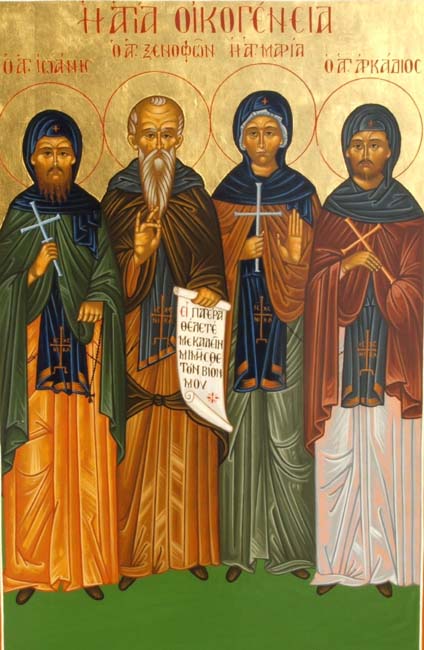Keeping the word of God
Here’s a homily recorded in the Synaxarion for February 9th, entitled “Whoever keeps My word will never taste death” (St. John 8:52)…
As long as a candle burns in a room, there will not be darkness as long as the candle burns and emits light. If food is seasoned with salt, it will be preserved from spoiling. If someone keeps the word of Christ in his soul, that one keeps salt and light in his soul and life will abide in him. Such a soul will not become dark in this life neither will it taste decaying death.
Whoever keeps the word of Christ in himself, the word of Christ sustains him from within and feeds him and enlightens him and enlivens him. Whether he is in the body or outside the body, he feels equally alive from the word of Christ, i.e., from the undying eternal life. The death of the body will give to his Life-bearing soul only a freer enthusiasm in embracing Christ, the Beloved Life-giver.
But, what does it mean, brethren, to keep the word of Christ within ourselves? That means; First: to keep the word of Christ in our mind, thinking about it; Second: to keep the word of Christ in our heart, loving it; Third: to keep the word of Christ in our will, fulfilling it in deeds; Fourth: to keep the word of Christ on our tongue, openly confessing it when it is necessary to do so. Thus, to keep the word of Christ means to fill ourselves with it and to fulfill it. Whoever would keep the word of Christ in this manner, truly, he will never taste of death.
O our Lord, Mighty Lord, mightier than death, give us strength and understanding to keep Your holy word to the end; that we do not taste of death and that death does not taste of us; that decay does not touch our soul. O Lord Allmerciful be merciful to us
 The Monk Xenophontes, his spouse Maria and their sons Arkadios and John, were noted citizens of Constantinople and lived in the 5th Century. Despite riches and position, they distinguished themselves by their simplicity of soul and goodness of heart.
The Monk Xenophontes, his spouse Maria and their sons Arkadios and John, were noted citizens of Constantinople and lived in the 5th Century. Despite riches and position, they distinguished themselves by their simplicity of soul and goodness of heart.